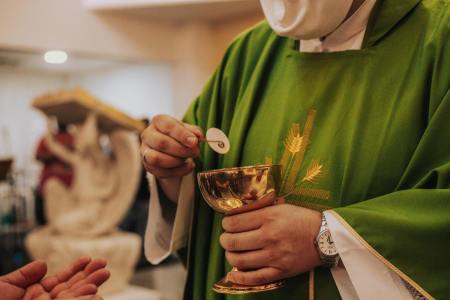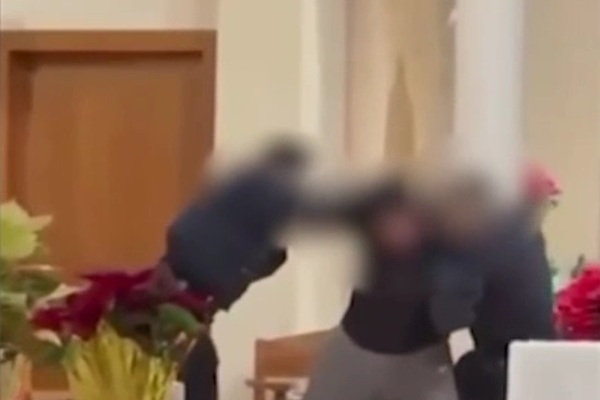5 things to know about Late Pope Emeritus Benedict XVI

2. Before becoming pope, Benedict advocated for withholding communion from pro-abortion politicians
The debate about whether or not to give communion to Catholic politicians who openly support abortion has also loomed large in the U.S. over the past couple of years with the election of pro-abortion Catholic Joe Biden as president. In 2004, Ratzinger, who served as Prefect of the Congregation for the Doctrine of the Faith at the time, wrote a letter to two high-ranking Catholic Church leaders in the U.S. outlining “general principles” about an individual’s “worthiness to receive communion.”
“The Church teaches that abortion or euthanasia is a grave sin,” Ratzinger wrote. “The Encyclical Letter Evangelium vitae, with reference to judicial decisions or civil laws that authorize or promote abortion or euthanasia, states that there is a ‘grave and clear obligation to oppose them by conscientious objection. [...] In the case of an intrinsically unjust law, such as a law permitting abortion or euthanasia, it is therefore never licit to obey it, or to ‘take part in a propoganda campaign in favor of such a law or vote for it.’”
According to Ratzinger, “Regarding the grave sin of abortion or euthanasia, when a person’s formal cooperation becomes manifest (understood, in the case of a Catholic politician, as his consistently campaigning and voting for permissive abortion and euthanasia laws), his Pastor should meet with him, instructing him about the Church’s teaching, informing him that he is not to present himself for Holy Communion until he brings to an end the objective situation of sin, and warning him that he will otherwise be denied the Eucharist.”
If the pastor’s efforts to get through to a pro-abortion Catholic politician fail and the individual still presents themselves for communion, Ratzinger declared that “the minister of Holy Communion must refuse to distribute it.” The Church’s Code of Canon Law states that those “obstinately persevering in manifest grave sin are not to be admitted to Holy Communion.”
In 2021, the U.S. Conference of Catholic Bishops voted to move ahead with drafting a Document on the Meaning of the Eucharist in the Life of the Church. While characterized by critics of the Catholic Church as an effort to prevent pro-abortion Catholic politicians from receiving communion, the USCCB published a question-and-answer document assuring the public otherwise.
“The document being drafted is not meant to be disciplinary in nature, nor is it targeted at any one individual or class of persons. It will include a section on the responsibility of every Catholic, including bishops, to live in accordance with the truth, goodness and beauty of the Eucharist we celebrate.”
Ryan Foley is a reporter for The Christian Post. He can be reached at: ryan.foley@christianpost.com





















